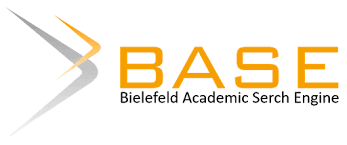PENGEMBANGAN BAHAN AJAR MATEMATIKA VOKASI DIGITAL BERBASIS STEM DI SMK PADA MATERI TRIGONOMETRI
Keywords:
digital teaching materials, vocational mathematics, STEM, trigonometriAbstract
Vocational education is higher education that supports the mastery of certain applied skills and mathematics is a universal language for presenting ideas or knowledge in a formal and precise manner so that it does not allow for multiple interpretations. This study aims to determine the quality of the development of STEM-based digital vocational mathematics teaching materials on Trigonometry materials in SMK. The research and development procedure uses the Plomp model which includes five stages, namely initial investigation, design, realization/construction, as well as testing, evaluation and revision and implementation. Sources of data in this study are validators, mathematics teachers and students of SMK Negeri 5 Denpasar. The data collection technique used a validation questionnaire for the validation test, a practicality questionnaire for the practicality test and a test for testing the effectiveness of digital vocational mathematics teaching materials. The results of the initial validity test were declared valid with a value of validity on the content aspect of 0.79, the validity of the presentation aspect of 0.90; language validity 0.93; and media validity 0.94. The results of the second stage of the validity test were declared valid, with a validity value of 0.91. The results of the practicality test on students obtained results of 80.5 and for teachers of 79.5 including the practical category, and the results obtained by students in the evaluation had an average of 84.15. So STEM-based digital vocational mathematics teaching materials are effective for use in learning in SMK.
Downloads
References
Aminingsih, & Izzati, N. (2020). Pengembangan modul pembelajaran berbasis STEM pada materi himpunan kelas VII SMP. Jurnal Ilmiah Pendidikan Matematika, 2(1), 67–76.
Capraro, R. M., & Slough, W. S. (2013). STEM Project-Based Learning: An Integrated Science, Technology, Engineering, and Mathematics (STEM) Approach. Sense Publishers.
Direktur Pembinaan SMK Kemendikbud: Siswa SMK Didominasi Keluarga Miskin, Kenapa ya?. (2015, Oktober 7). Metro Siantar.com. Retrieved November 20, 2017, from:http://www.metrosiantar.co m /news/nasional/ 2015/10/07/ 213808/siswa-smk- didominasi- dari-keluarga- miskin-kenapa-ya/.
Guilford, J.P., Fundamental Statistics in Psychology and Education, New York: McGraw- Hill Book Company, inc., 1956
Hidayatullah, M. S. (2016). Pengembangan media pembelajaran berbasis flip book maker pada mata pelajaran elektronika dasar di SMK Negeri 1 Sampang. Jurnal Pendidikan Teknik Elektro, 5(1), 84.
Ismayani, A. (2016). Pengaruh Penerapan STEM Project - Based Learning terhadap Kreativitas Matematis Siswa SMK. Indonesian Digital Journal of Mathematics and Education, 3, 264–272.
Khaeroningtyas, Permanasari, & Hamidah. (2016). STEM Learning in Material of Temperature and Its Change to Improve Scientific Literacy of Junior High School Students. Jurnal Pendidikan IPA Indonesia, 5(1).
Milaturrahmah, N., Mardiyana, M., & Pramudya, I. (2017). Mathematic learning process with science, technology, engineerin, mathematics (STEM)approach in indonesia. In International Conference on Mathematics and Science Education (ICMScE), 1–7.
Niam, M. A., & Asikin, M. (2020). The development of science, technology, engineering, and mathematics (stem)-based mathematics teaching materials to increase mathematical connection ability. 8(1), 153–167.
Pangesti, K. I., Yulianti, D., & Sugianto. (2017). Bahan ajar berbasis STEM (science, technology, engineering, and mathematics) untuk meningkatkan penguasaan konsep siswa SMA. Unnes Physics Education Journal, 6(3), 53–58.
Pribadi, B. A., & Putri, D. A. padmo. (2019). Pengembangan Bahan Ajar. Universitas Terbuka.
Sari, N., Syarif Sumantri, M., & G Bachtiar, I. (2018). The development of science teaching materials based on STEM to increase science literacy ability of elementary school students. International Journal of Advances in Scientific Research and Engineering, 4(7), 161–168. https://doi.org/10.31695/ijasre.2018.32808
Sugiyono. (2019). Metode Penelitian Pedidikan (Kuantitatif, Kualitatif, Kombinasi, R&D, dan Penelitian Pendidikan). Alfabeta CV.
Utami, T. N., Jatmiko, A., & Suherman. (2018). Pengembangan modul matematika dengan pendekatan science, technology, engineering, and mathematics (STEM) padamateri segiempat. Jurnal Matematika, 1(2), 165–172.
Downloads
Published
How to Cite
Issue
Section
License
Copyright (c) 2022 LP3M Universitas PGRI Mahadewa Indonesia

This work is licensed under a Creative Commons Attribution-NonCommercial-ShareAlike 4.0 International License.
Hak cipta mencakup hak eksklusif untuk mereproduksi dan mengirimkan artikel ini dalam semua bentuk dan media, termasuk mencetak ulang, memotret, mikrofilm dan reproduksi serupa lainnya, serta terjemahannya. Reproduksi dari bagian manapun dari jurnal ini, penyimpanannya di database dan transmisinya dengan bentuk atau media apa pun, seperti salinan elektronik, elektrostatik dan mekanis, fotokopi, rekaman, media magnetik, dan lain-lain, akan diizinkan hanya dengan izin tertulis dari penerbit jurnal.







1_(1).jpg)











